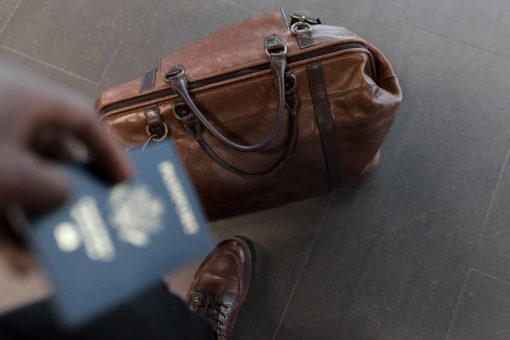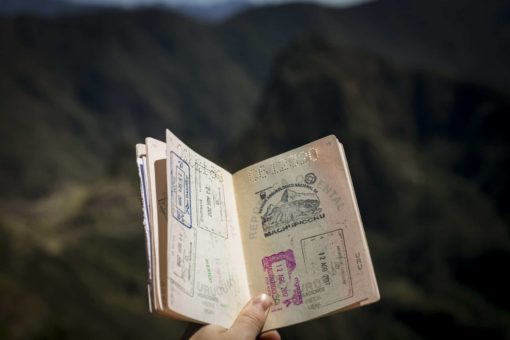Planning a trip to Europe can be an overwhelming experience.
What countries should you visit? How do you get there? What activities do you want to do? What budget will you set for your trip?
So, planning a trip isn’t an easy feat, let alone planning a trip that requires you to get a Schengen Visa.
There’s a firehose of information out there that can often make the task of preparing your trip to Europe and your Schengen Visa application even more overwhelming.
That’s why the Visas Association’s team has put together a list of questions to ask yourself before you decide to book your flight or buy a Europe tour package.
Ideally, you should ask yourself these questions at the very first stage of planning your trip when you’re just floating ideas around.
Answering each of these questions will help you better understand the steps you need to take before applying for a Schengen Visa.
Having a clear picture of your Schengen Visa application process before collecting your documents will also help you minimise the stress and red tape when dealing with the authorities and, ultimately, ensure you have the highest chance of Visa approval.
Table of contents:
1. Do I need a Schengen Visa to travel to Europe?
3. What type of Schengen Visa do I need?
4. How will I fund my trip to Europe?
5. How can I prove ties to my home country?
6. Can I collect all the documents required for my Schengen Visa on time?
7. Do I know all the steps to apply for a Schengen Visa?
8. Am I able to prepare my Schengen Visa application myself?
1. Do I Need a Schengen Visa to Travel to Europe?

Before you even pick your destination and start your trip planning process, make sure you look to see if you need a Schengen Visa to enter Europe.
While there are countries whose citizens have Visa-free access to the Schengen Area, other countries are required to get a Schengen Visa before entering Europe.
Therefore, the very first step you need to take before making any decisions about hotels, flights and activities is to determine whether or not you need to apply for a Schengen Visa.
The European Union has a common list of countries whose citizens must hold a Visa when crossing the external borders of the Schengen Area and countries whose citizens are exempt from that requirement.
So, spare a few minutes to read this post and find out if you need to apply for a Schengen Visa. Who knows, maybe you are lucky enough to be able to plan your next trip to Europe without much bureaucratic hassle.
2. What Is My Travel Purpose?
Having a clear travel purpose is essential when applying for a Schengen Visa.
Are you planning to go to Europe for tourism, business, visit your relatives, or for another purpose?
The reason why you’re travelling determines the type of documents you need to collect before submitting your Visa application, so make sure you have a clear idea of your travel purpose.
Suppose, for example, that you plan on travelling to Europe to visit your friends and explore popular tourist destinations. In that case, you need to provide two sets of documents related to your travel purpose.
Firstly, you need to provide documents that prove you will be visiting your friends in the Schengen Area (e.g., invitation letter or accommodation sponsorship letter – if they provide you with accommodation during your trip).
Secondly, you need to provide documents that prove you will be visiting the Schengen Area for tourism purposes (e.g., day-to-day travel itinerary).
Remember, knowing exactly your travel purpose will help you figure out what documents you need to collect and submit to the Embassy with your application.
3. What Type of Schengen Visa Do I Need?

The type of Visa you need depends on your primary purpose for entering Europe and the length of your stay.
Of course, the Embassy officers know what type of Schengen Visa is right for you, according to your travel purpose and personal situation.
However, we encourage you not to start preparing your Visa application without knowing what Visa category is suitable for your travel purpose. Otherwise, you will not be able to determine the exact documents you need to submit with your application.
Suppose, for example, that you will be travelling to attend an international short course and need to enter and exit the Schengen Area multiple times before finishing the course and returning to your country of residence.
In that case, you need to apply for a type-C multiple-entry Study (or Student) Schengen Visa and submit supporting documents that prove your travel purpose and your need to enter the Schengen Area multiple times.
We have already written a complete guide to the Schengen Visa types to help you ensure you are applying for the right Visa. Click here to read it and find out what type of Schengen Visa you need to apply for.
4. How Will I Fund My Trip to Europe?
When applying for a Schengen Visa, it is essential that you show proof of your “means of subsistence.”
How will you fund your trip to Europe? Are you employed or unemployed? What is your primary source of income? Do you have multiple income streams? If you are not able to financially support yourself during your trip, will someone sponsor you?
Before you even start collecting the required documents, you need to ensure that you have sufficient funds for your entire stay in your Schengen Area.
If you do not have enough money in your bank account, you risk jeopardising your entire application.
Remember, every European country has a minimum cost of living. Take our financial means test and find out whether or not you have the financial ability to reside in the Schengen Area, according to the rules of each Member State.
5. How Can I Prove Ties to My Home Country?
One of the most common reasons for Schengen Visa rejection is that the submitted documents are not considered enough to guarantee the applicant’s genuine intentions to return to their country of residence before the Visa expires.
Remember, the documents you submit with your Visa application can be, at best, time-consuming to obtain and, at worst, a hindrance to your dream trip to Europe.
So, before you even start preparing your application, you need to be sure that you are able to prove your reasons for returning to your home country.
The “ties” to your home country can be anything that binds you to your country of residence, such as family, job, properties, investments, etc.
So, think of whatever document you may use to prove your “rootedness” and the strong ties you have in your home country, such as your marriage certificate, your children’s birth certificates, a property deed, etc.
6. Can I Collect All the Documents Required for My Schengen Visa on Time?

Let’s admit it; going through a variety of procedures in order to collect piles of documents for your Visa application can feel overwhelming.
Depending on the supporting documents you need to submit to the Embassy, it could take anywhere between a couple of days and a few weeks to collect them.
Suppose you plan on travelling to Europe in June and ask for a leave of absence from your job for that period.
Will you be able to collect all of your documents on time? Will your company provide you with evidence to support your employment status prior to your scheduled travel date so that you can avoid any unforeseen delays?
Make sure you start preparing your Visa application well in advance to ensure you meticulously follow the checklist and meet every requirement. Just sit awhile and think. How long would it take to collect each document? Then, create a schedule for your Schengen Visa application and do your best to stick to it.
Our default recommendation is to submit your application at least three weeks before your departure date and start collecting your documents roughly two months before the date of your Embassy appointment.
7. Do I Know All the Steps to Apply for a Schengen Visa?
If you’re applying for a Schengen Visa for the first time, you may experience some confusion.
Do you know the exact steps you need to follow to apply for a Schengen Visa? Do you know where and when to apply and what questions you’re likely to answer during your Visa interview?
If you want to avoid any issues and ensure your Visa application process goes as smoothly as possible, you need to know exactly what step to take to follow a straightforward application procedure.
For example, did you know that you first need to book your Visa appointment and then collect your documents? This is because applicants are typically required to schedule a Visa interview well in advance as there might be a considerable waiting period of several weeks for an Embassy appointment.
If you want to learn the exact steps to take to apply for a Schengen Visa, spare a few minutes to read our Beginner’s Guide to the Schengen Visa Application Process.
8. Am I Able to Prepare My Schengen Visa Application Myself?

Preparing your Schengen Visa application yourself is possible, but it can be an overwhelmingly complex process.
As the Schengen Visa requirements can be confusing, it’s not unusual to get them wrong and jeopardise your chances of approval.
Ask yourself, “Am I able to prepare a successful Schengen Visa application myself? Or do I need support and advice from highly trained and experienced Visa consultants?”
You might be thinking, “Even if I need help with my Schengen Visa application, I cannot afford an expensive immigration lawyer or Visa attorney”.
That’s fair enough. In most countries, Visa consultants and attorneys charge very high fees that some applicants cannot afford, especially if they plan on travelling on a budget.
Luckily, the Visas Association team is here to help every step of the way. We understand the frustration and confusion many applicants experience when submitting a Visa application for the first time.
That’s why our Visa experts have developed a personalised Schengen Visa Requirements Report (SERR) that follows the same method Embassies use when reviewing your Visa application.
We have dropped the price of the proprietary Schengen Visa Requirements Report (SERR) to only $7 (yes, you read that right!) in order to help as many applicants as possible get expert advice and support without spending a fortune.
The Schengen Visa Requirements Report (SERR) will help you skip your research and remove the chance of failure due to submitting incorrect or inconsistent documents.
So, if you think that preparing your Schengen Visa application yourself is too difficult, frustrating, and time-consuming, make sure you get your Personalised Schengen Visa Requirements Report (SERR) TODAY at a heavily discounted price. Our Visa experts will review your situation and tell you exactly what documents you need to submit with your application.
Conclusion: Answering the questions above will get you started on the right foot when applying for a Schengen Visa and planning out a trip to Europe.
Remember, the Visas Association team is here to provide information, advice, guidance and support on any aspect concerning your application. We are highly trained and experienced and assist every applicant in line with the Schengen Visa and EU code of standards. Do not hesitate to contact us if you have any questions or concerns related to your application, and we’ll do our very best to help you.
